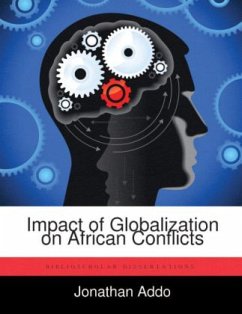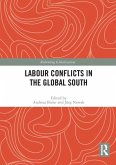There is no region of this world that not experienced wars, but while many parts of the world have moved towards greater political and economic stability and co-operation, sub-Saharan Africa remains a cauldron of instability and economic deprivation. Globalization, which in simple terms means a worldwide network of interdependence, is a phenomenon, which emerged at the end of the Cold War and the advent of the information revolution. While economic interdependence and liberalization has been acclaimed as the only hope for prosperity for the world, it has also been blamed as source of conflict in many parts of the world. This thesis examines the nexus between globalization and contemporary African conflicts with case studies of conflict scenarios in four African countries namely, the Democratic Republic of Congo, Sierra Leone, Nigeria and Guinea to ascertain the extent to which globalization played a role in sustaining these conflicts. The conclusion of this dissertation is that contemporary African conflicts have both national and international underpinnings, and include political, social and economic parameters. On the socio-political side, the conflicts are directly related to the circumstances surrounding the acquisition of independence, the multiethnic composition of the states, and the more often cited causes generally subsumed under the generic label governance. It also shows that the increased liberalization and expansion of international trade, which occurred in the aftermath of the Cold War, has exacerbated the level and intensity of the conflicts in three of the countries analyzed.
Hinweis: Dieser Artikel kann nur an eine deutsche Lieferadresse ausgeliefert werden.
Hinweis: Dieser Artikel kann nur an eine deutsche Lieferadresse ausgeliefert werden.








